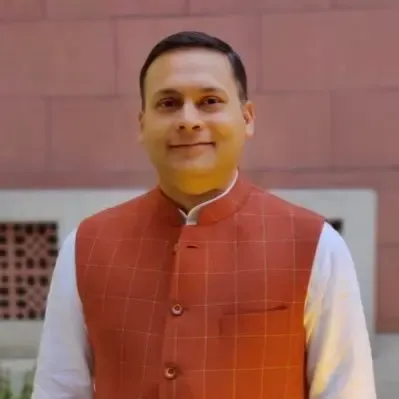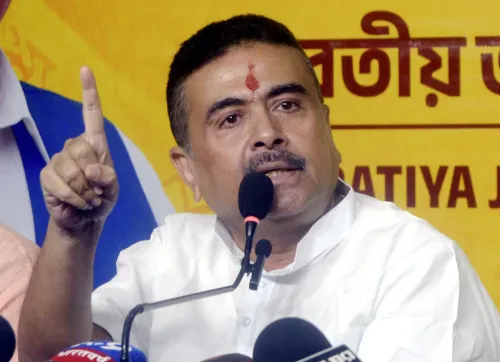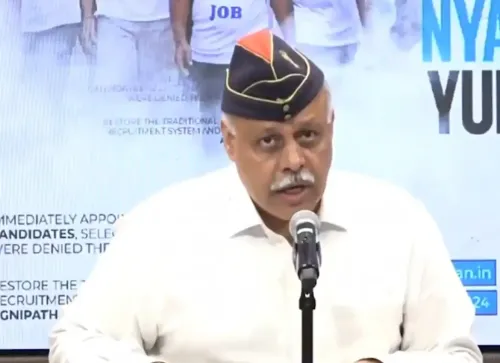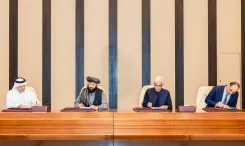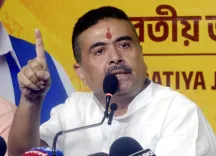How Does Defence Minister Singh Reaffirm India's Zero Tolerance Against Terrorism?
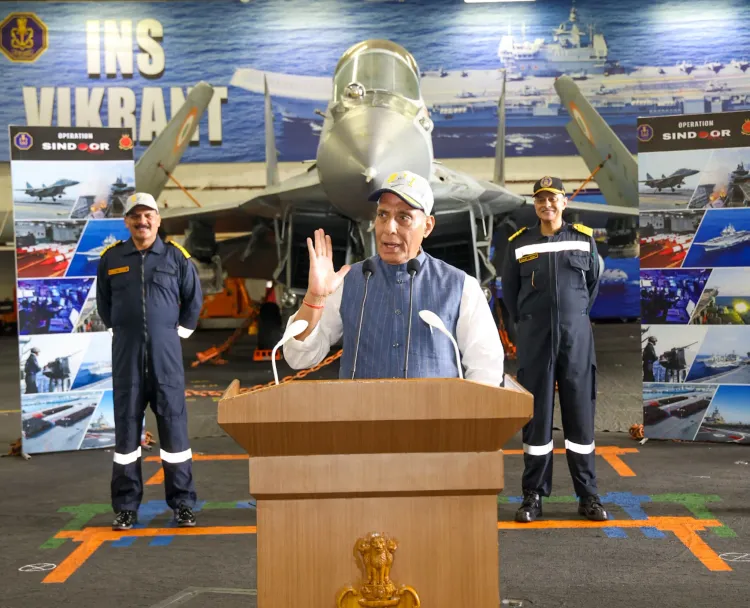
Synopsis
Key Takeaways
- India's zero tolerance policy is a cornerstone of its national security strategy.
- Rajnath Singh emphasizes the collective responsibility of nations in fighting terrorism.
- India has successfully isolated Pakistan on the international stage.
- A call for a global definition of terrorism is crucial for effective prosecution.
- Dialogue with Pakistan is contingent upon addressing terrorism issues.
New Delhi, June 7 (NationPress) Defence Minister Rajnath Singh emphasized India's unwavering zero tolerance policy towards terrorism and urged the global community to eradicate this threat.
In a statement on the social media platform X, Minister Singh asserted that combating terrorism is a shared responsibility, not a choice.
He also referenced his article in a prominent English publication, where he proposed strategies to combat the plague of terrorism.
The Defence Minister revealed that India has long suffered from state-sponsored cross-border terrorism emanating from Pakistan, citing incidents such as the 26/11 attacks, the 2001 Parliament attack, and the recent Pahalgam attack. Despite these challenges, India remains steadfast and resolute.
“We have demonstrated effective methods to combat terrorism,” Rajnath Singh remarked, offering insights for the global community.
Highlighting that the currency of terrorism is fear, he noted how attempts by terrorists to disrupt Indian unity have consistently failed.
The Pahalgam attack, where terrorists targeted individuals based on their religion, and Pakistan's assaults on various religious sites aimed at sowing division, ultimately did not succeed.
He reiterated the NDA government's position that any future discussions with Pakistan will be strictly focused on terrorism and the issue of Pakistan-occupied Kashmir.
Stressing that dialogue and terrorism cannot coexist, Rajnath Singh stated that if Pakistan is earnest, it must extradite UN-designated terrorists like Hafiz Saeed and Masood Azhar.
He also pointed out India's fundamental shift in policy towards Pakistan-sponsored terrorism, indicating that whereas armed forces previously operated defensively, they now undertake surgical strikes, including the Balakot strikes and Operation Sindoor.
Any act of terrorism is now viewed as an act of war, and “we will eliminate terrorists wherever they are,” he asserted.
He cautioned that Pakistan will incur consequences if it fails to control terrorists operating from its territory. The Defence Minister echoed PM Modi's assertion that India will not cease efforts until terrorism is eradicated.
India has successfully diplomatically and economically isolated Pakistan and has suspended the Indus Water Treaty until Pakistan credibly renounces its support for cross-border terrorism.
To dismantle terrorist networks effectively, Rajnath Singh called for a universally accepted definition of terrorism to facilitate the investigation and prosecution of terrorist acts, alongside ensuring the extradition of terrorists from abroad.
He urged donor nations and multilateral organizations to cease funding states that sponsor terrorism.
Rajnath Singh noted that Pakistan has a history of misappropriating bailout packages for cross-border terrorism and should be placed back on the grey list by the Financial Action Task Force (FATF).
The relationship between state and non-state actors in Pakistan was underscored by the state honors given to designated terrorists during their funerals.
He also warned of the potential threat that nuclear weapons could fall into the hands of non-state actors in Pakistan and called for international oversight of Pakistan's nuclear arsenal by the International Atomic Energy Agency.
Furthermore, he emphasized that the intensity of responses to terrorist acts should not depend on their location or the victims' nationality, as this could embolden perpetrators.
Rajnath Singh concluded, “It is time for all nations to unite and endorse the Comprehensive Convention against International Terrorism.

